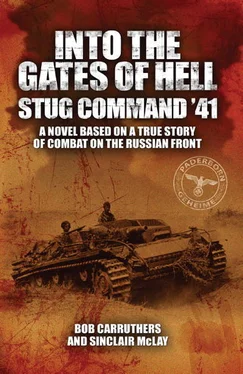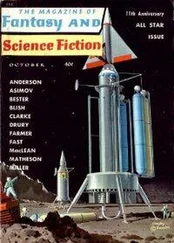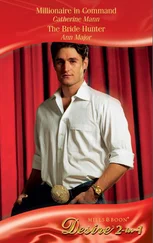Wendorff couldn’t believe what he was hearing. “She was a nurse, for God’s sake!”
“Really?” replied Dirlewanger. “Well, what’s this then?” He produced a Soviet document. “Unless I’m very much mistaken, this is a trade union membership card from a bolshevist trade union. You will note the name Bettina Ostermann… and furthermore, the bitch stole the gun of one of my men. It was all a Soviet trap. The scum are so low that they will even use their own children as weapons. They have no respect for the innocents, the poor loves, caught up in the crossfire like that. Now, I’m afraid I cannot possibly retain the trust of my unit if I allow the likes of you to escape unpunished for attacking an officer of the Reich.
“Leow, what shall we do with this traitor? We all saw him in Soviet uniform, trying to infiltrate the sow and her swine behind our lines. Summary execution followed by a bit of paperwork, or something a bit more delicious? On second thoughts, I think we have had our fun today. Summary execution it is then, Loew?”
Loew laughed and nodded. Dirlewanger pulled out his pistol and pointed it at Wendorff. Smiling and insouciant, he was just about to pull the trigger when he heard a voice behind him.
“Dirlewanger!”
It was Hans von Schroif and behind him stood a squad of armed men from the StuG battalion. At their head was Hauptscharführer Michael Knispel.
* * * * *
As Dirlewanger and his command made their way out of the clearing in the direction of the fortress, Hans von Schroif watched every move. He had a great deal on his mind and he showed complete contempt.
“You will have to take charge here, I’m afraid,” he said to Knispel. “Give them the best burial you can. I’m going to make sure there’s no repeat when the fortress falls.”
The awful task of burying the bodies of the children now commenced. It was heartrending. The tiny remains signified innocent, prematurely destroyed lives. Knispel supervised the burial. He was a hard man, but even he was almost reduced to tears by the harrowing task.
He was glad when his attention was drawn to a figure hunched by the edge of the clearing. The man was part of Dirlewanger’s unit. He had been unable to join the others and was left behind, still vomiting and shaking. Next to him was a powerful hunter’s rifle. Knispel moved swiftly and soon stood over him. The man’s arms were tightly folded, his hands concealed under his armpits as he continued to wretch.
“Can you stand up?” asked Knispel.
Eventually the man looked up. “I don’t know. I don’t care anymore,” he said weakly, his wandering gaze failing to focus on Knispel.
“Otto Frankl!” exclaimed Knispel. “‘What are you doing here?”
“Michael Knispel? It’s you? After all these years…”
“So what brings you into Dirlewanger’s unit?”
“I was given a choice, stay in jail and rot or sign up as a marksman with Dirlewanger.”
“Why were you locked up?”
“You know me, Knispel, once a poacher… always a poacher. I got caught plundering deer. I got five years.”
“God almighty! How much did you poach?”
“It wasn’t the amount, it was where… they caught me on Göring’s estate.”
“You idiot, even I wouldn’t be that stupid!” said Knispel in astonishment.
“Well, I don’t care anymore. I can’t do this. They can shoot me for all I care. I won’t go any further. I’m finished, Knispel. My life’s over. The things I’ve seen, they haunt me day and night. I can’t go on. Can you get me out of this, Knispel?”
“Well, Sturmbannführer Voss does have the right connections to Deitrich. We can sometimes arrange transfers… even for total idiots.”
Knispel’s gaze then fell longingly on the hunting rifle. “I see you’ve got yourself a Sauer.”
Knispel knew that rifles with telescopic sights were only given to the best marksmen, irrespective of rank. They were looked upon as an honour, and changes were avoided as far as possible. This was not military issue. It also carried a fine telescopic sight of the sporting type, and one like this was not suitable for military purposes. In any event, it could not be manufactured within a short period in the large numbers required. The intention of the military was to issue as many serviceable telescopic sights as possible, and not to develop just a few high-grade optical instruments. The present army telescopic sight had a low magnification, but was practical and rugged. When properly handled, it was effective in the field.
Knispel was much more familiar with the sporting sight on the Sauer rifle which Frankl carried. It was a general rule that the greater the magnification of the telescopic sight, the smaller the field of vision. A telescopic sight like this with wide field of vision and high magnification was the poacher’s stock in trade, but was not available for military service because of its size and its sensitivity. Sights were very delicate and had to be tested and, if necessary, corrected. This was nearly always the case when the sights had been transported for long periods.
“It’s yours now. I’ll never touch one again, as long as I live,” said Frankl. “They can do to me what they like.”
As he spoke there came the sharp report of a nearby explosion as Thor sent another huge shell hurtling towards the fortress. The siege was drawing to a close and the impact of the mighty gun was bringing it towards a swift conclusion.
Knispel now thought of von Schroif, who had followed Dirlewanger. He might need some help.
“You have an agreement, Frankl. Welcome to the Sturmgeschütz battalion. I’ll take care of this.”
Michael Knispel picked up the elegant Sauer rifle and made his way to the fortress.
* * * * *
The huge detonations were indeed draining the last will of the defenders to resist. They also caused further casualties. Yefim Fomin was one of those. Unlike the others crouched in the rubble of the citadel, Fomin did not pick himself up and try to dust himself down. The effects ofa catastrophic explosive event like the detonation of a massive shell in close proximity cannot be easily subdivided into neat linear packages. The deadening of the senses, the all-pervasive shock, does not end cleanly and decisively. In some cases, it ever ends.
From his depressing experience, Captain Zubachyov knew this all too well. So, when he shook Fomin gently, he did not expect an immediate reply, or any kind of reply for that matter. It was just what had to be done, and what needed to be repeated, again and again.
“Comrade…. comrade…” he said, shaking the commissar, but Fomin lay still.
Despite the ferocity of the blast, the destructive capability of the howitzer was uneven. In the Kobrin fortification, Pyotr Gavrilov and Dimitri Korsak were thrown to the ground, but were quickly back on their feet. As soon as they realised that they were personally unharmed they at once grabbed binoculars and took stock of the overall situation. From the nearest vantage point in the Kobrin fort, both were immediately apprised of the calamitous effect the huge bomb had had on the citadel’s defenders.
They could see that German troops were now moving in from all directions and, despite the fitful crack of small-arms fire, resistance in the citadel seemed to have evaporated. Small groups of defenders, stunned into senselessness, had now started to stagger out into the courtyard, many waving white flags. Nearly all were wounded.
In the corner of the Kobrin fortification, which they still held, Gavrilov turned to Korsak.
“Comrade, the situation requires utter honesty. All is lost. I shall not leave, nor will those men who still stand with us. However◦— and this is an order my friend◦— a report has to be made. Not just for the purpose of intelligence, which is obviously vital, but… and I am not being sentimental here◦— far from it… but as a memoriam… that these lives that have been lost here have not been lost in vain… that their sacrifice shall remain long and honoured in the history of glorious Mother Russia and also that these brave men and women’s fate should serve as a spur◦— a hellish reminder◦— for those who continue to fight.
Читать дальше












